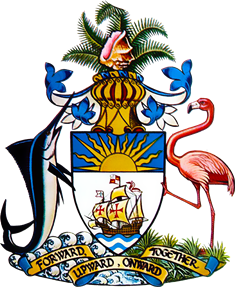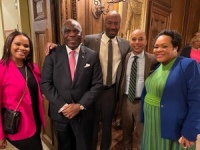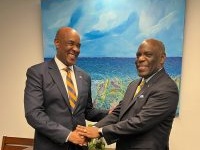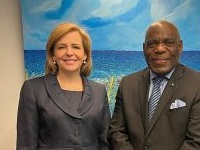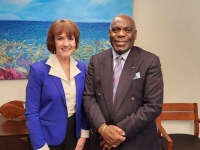By OSWALD T. BROWN
WASHINGTON, D.C. — There is no disputing the fact that the most widely acclaimed BAHAMIAN IN THE DIASPORA is Sir Sidney Poitier, KBE, the Bahamian-American actor, film director, author and diplomat. Although he was born in Miami, Florida, on February 20, 1927, Sir Sidney’s Bahamian roots are deeply planted in Cat Island, where his parents, Evelyn and Reginald Poitier, owned a farm and were actually in Miami selling produce from that farm when Sir Sidney was born.
According to Wikipedia, Sir Sidney was born two months prematurely and “was not expected to survive, but his parents remained in Miami for three months to nurse him to health” before returning to The Bahamas, where he spent his boyhood years before moving to Miami to live with a brother.
Of course, Sir Sidney’s remarkable life story and how he became one of the world’s leading actors is clearly the reason why he is the most widely acclaimed Bahamian in the Diaspora, but there are a number of Bahamians whose achievements in their chosen careers are just as stellar as Sir Sidney’s achievements as an actor. It is from the pool of accomplished Bahamians living abroad that we will select an individual for our BAHAMIANS IN THE DIASPORA monthly feature for The Bahamas Embassy’s website.
The first outstanding Bahamian we have chosen to feature in this regard is Dr. Roger L. Weir MD (MB,BS), who has had a distinguished career in the field of medicine, including more than four decades in some capacity at historic Howard University Hospital and its predecessor Freedmen’s Hospital in Washington, D.C.
Dr. Weir was born in the West Street/Meeting Street neighborhood of Nassau in 1941. He is the third child of the late Gaspar Weir, a successful land surveyor, and the late Eunice Weir, a teacher, both of whom attended one of the older high schools in The Bahamas. The Weirs were long-term Methodists who placed a great deal of emphasis on their children receiving a good education. Dr. Weir has an older brother, Rev. Dr. Emmett Weir, one of The Bahamas’ well-known theologians, and his sisters Miriam and Sheila have also carved out successful careers in their chosen fields.
Dr. Weir recalls that the “home atmosphere had some academic qualities that were reinforced by a grand-aunt Lillian Weir, a former librarian, and her brother Charles Weir, who spoke glowingly of his days at Tuskegee Institute.”
During his teenage years young Roger Weir developed an interest in brain functions and psychiatry and at the age of 18, he left The Bahamas to finish advanced high school and later enter training at London University.
“My medical schooling was at St. Bartholomew’s Hospital, one of the oldest hospitals of the English speaking world,” Dr. Weir recalls. “I did a medical and surgery internship in the United Kingdom and in 1967 began a psychiatry internship at Harlem Hospital in Manhattan, New York. In 1968 I began a three-year neurology residency at Kings County/Downstate Hospital in Brooklyn, New York. My work there included a movement disorder clinic managed by Arthur Lapovsky.”
Dr. Weir’s more than four decades at Howard University started in 1971 when he was hired as an instructor of neurology at Freedmen’s Hospital, the forerunner of Howard University Hospital, and he “initially worked there half-time while I also worked doing bench research at the National Institutes of Health.”
In 1967, Freedmen’s Hospital, which had served the black community in Washington, D.C. for more than a century, having been established in 1862, was transferred to Howard University and used as a hospital until 1975. The University Hospital is now located in a modern facility at 2041 Georgia Avenue, NW.
“My basic science research continued for over 15 years while working full-time in neurology at Howard,” Dr. Weir says.
In 1973 he became an assistant professor of neurology and subsequently an associate professor, which is his current position.
From 1990 to 1995 he was Chairman of the Department of Neurology.
Academically he has published several dozen refereed papers, covering both the basic sciences and clinical topics. Anticonvulsant mechanisms; dopamine, serotonin and methyl-xanthine metabolism were studied. Parkinson’s, dementia, stroke and ethics are among the fields of academic presentations and neurology lectures.
“Working at Howard/Freedmen’s hospital allows for great clinical experiences,” Dr. Weir says. “Additionally, the hospital has a formal and real mission to accommodate the underserved.”

Dr. Roger L. Weir pictured in front of photographs of doctors who served as chairmen of Howard University Hospital’s Department of Neurology. He was chairman from 1990 to 1995.
Oswald T. Brown is the Press, Cultural Affairs and Information Manager with the Embassy of The Bahamas in Washington, D.C.
